IN Magazine talked with the Looking actor to discuss what drew him to play a closeted American man in Plainclothes, plus the danger of public sexual interactions, and the loss of queer signalling during the Grindr age…
By Matthew Creith
As awards season is fast approaching, Russell Tovey’s name might be at the top of many insiders’ lists to not overlook. In Plainclothes, which premiered at the Sundance Film Festival earlier this year, the Looking heartthrob delivers a quietly powerful portrayal of a closeted New Yorker named Andrew who is navigating desire, vulnerability and survival in 1990s America. This was a time when undercover police were often tasked with entrapping gay men in public situations when they sought connection with other men, behaviour that was criminalized.
Directed by Carmen Emmi and co-starring Tom Blyth as Lucas, an undercover officer tasked with entrapping gay men, Plainclothes is an erotic thriller that lingers long after the credits roll. Lucas finds himself drawn to Andrew, a man who not only must steer away from societal danger but also offers tenderness and care during what might be Lucas’s first experience of love, lust and intimacy.
IN Magazine had the opportunity to talk to Russell Tovey when the film premiered theatrically this fall, to gain his insight into the experience of making such a unique movie and what modern gay dating is like compared to 1990s-era America.
I had the chance to watch Plainclothes at Sundance, and I’ve been wanting to talk to you ever since. Before dating apps, gay men often faced real risks just to connect with other gay men. What drew you to Andrew as a character navigating that world?
What drew me to Andrew, and what always draws me to a script, is the dialogue. Within a few pages, I was like, ‘I need to say these words. I want to inhabit this person.’ I’ve always had a slightly romantic notion of Syracuse [where the film was shot]. We had a very beautiful time there, and I was just very excited to be filming upstate in an area where the writer-director was from. He was working with all his family and friends who were up there, and there was something really wholesome and special about that.
I’m very much drawn to queer stories, and Andrew was unlike anyone I’d played before. His struggles, his need for connection, and the way he navigates the world I found fascinating, enthralling and exciting. I loved the idea of being a character that is enabling or facilitating someone else’s first experience, and how you approach that, and the responsibility of that.
It felt beautiful. I really pushed for this: Andrew makes sure that Lucas has a very loving, kind, generous first experience. It was fundamental to me that the first experience was safe, that sex was safe, that the communication was safe, and that he was very clear with him. There was no ghosting, as we’d say now. They wouldn’t have said that then. But in this relationship, however long it lasted, I felt like Andrew wanted to give Lucas something that he wouldn’t be traumatized by. So many people’s first experiences are very traumatic, very selfish, and this was something that I found beautiful.
You’ve played several queer roles, and I’d be remiss if I didn’t mention Looking. That show was transformative for me personally. I wasn’t out when I first started watching, but I came out during its run, and I don’t think that was a coincidence. Seeing gay men in relationships and friendships that evolved over time really mattered. How did Plainclothes feel distinct in its depiction of gay men’s experiences?
Well, when safe spaces are taken away and representation is minimal, queer people are pushed to the margins into dangerous scenarios. This isn’t that dangerous a scenario that they’re in, but because of society, because of timing, there isn’t freedom for living authentically. People are pushed into these dangerous places. I feel like this film is indicative of that. It’s based on a true story of gay men being targeted. That’s shocking, and it feels like it should be a historical piece. But the way the world goes, it’s cyclical. The conversations that are happening here [in the United Kingdom], versus over where you are, are quite frankly terrifying.
I don’t think when we were making this film that we realized the enormity of what it is. It doesn’t feel like a historical piece; it feels contemporary.
Especially for younger audiences who didn’t live through that era, how important is it to revisit that history?
For me, as Russell, knowing our history is imperative. Knowing the shoulders of giants that I can stand on. Especially trans women and trans people, I feel like I have a responsibility with my platform to amplify their stories, to cite sources, and to pay homage to them. I’m only here because people did this work before me. I hope people will watch this and learn, and want to go off and know more, and want to know about their history.
I feel like we, as a community, have an inherited trauma, and we need to know what’s happened, and what is happening, to understand it. What mistakes were made in the past, how they were overcome, and where we’ve got to now. It doesn’t feel like there has been an opportunity for that education to stick.
I hope people also feel that this film is beautiful, and it’s a universal story about unrequited love, and the need to police one’s feelings because of society. I want people to feel touched. I’ve had a lot of people who have seen the film say these characters live beyond it with them. They care about them. They want to know if they’re okay. They want to make sure they’re happy. It’s a beautiful story.
The film also captures the paranoia and coded signals of cruising culture: silent exchanges, glances, gestures. I remember that myself from going out, and it feels very different from today’s swipe culture. Do you think something’s been lost with dating apps replacing public spaces and bars?
I think IRL is so important. But a lot of those things still exist. I still really trust the two-and-a-half-second, three-second rule: look back, and then it’s on. I love that. I’ve always been fascinated by that. I love the way queer people interact in safe spaces. It’s a beautiful thing. Flirting, connections, meeting strangers, starting conversations. That’s beautiful. In my life, that isn’t lost. I’m not someone deep into app culture. It’s impossible for me to a certain extent, but I love IRL connections for sure. I hope we don’t lose the ability to flirt.

Absolutely. What do you hope audiences, gay and straight alike, take away from Plainclothes, especially about the risks gay men faced just a few decades ago?
There are many things I want people to take away. I want people to discover Carmen Emmi as a brand-new talent. I want people to discover independent films. This was made for hardly anything, by people who believed in it and were passionate about it. It’s having such a beautiful response and impact. I want people to be inspired by that and get behind independent film and storytelling of this level.
I want people to see representation of themselves on screen, to see possibilities, to see characters that allow them – like you said you had with Looking – to find their authentic truth. I want people to be entertained. People ask a lot about the sex scenes, but I feel like the sex scenes here are universal. It’s the human condition. The things I’m drawn to are stories that, especially in today’s climate, help us find similarities rather than differences. I want people to watch this film and see similarities in these characters that they feel in their own lives. We all feel the same things. We all long for the same things. We all desire and need and deserve the same things, however we feel about other human beings, whoever we’re attracted to. I want people to see the similarities in these characters in their own lives.
It really is such an erotic thriller with a lot of heart. In today’s Marvel-heavy film landscape, having an independent film like this break through feels rare and refreshing.
Thank you. But you see, for example, with Plainclothes, we’re so fortunate to get a theatrical release. Then it’ll end up somewhere online, on a streamer. But the real stories, the places where we find the realities of life, are in independent film. I’m proud to be part of this season of independent films that are coming out. There are so many brilliant voices, performances and storytellers. It’s really exciting, but it’s also very important that we support that.
Looking beyond Plainclothes, I’ve noticed you’ve been promoting The War Between the Land and the Sea on social media. What can you share about that?
This is written by Russell T. Davies. It’s a new five-part series for Disney and BBC. It’s a Doctor Who spin-off, so it exists within that umbrella. It will be out at the end of the year or the start of next year. I play a character, Barkley. He’s someone very lowly in an office, booking people’s taxes, overlooked and slightly ignored. He’s a drifter, going through the motions. Something happens, and he’s given the biggest responsibility ever.
I loved it. I’m really proud of it. I’m really excited about it. It feels exciting and important, and it has an important message, which I’m not allowed to read or talk about yet. But I’m incredibly proud and excited.
That sounds fantastic. Russell, thank you so much for your time, and good luck with Plainclothes. I’m excited for more people to experience it.
I’m really moved that you felt Looking changed you, because it changed me as a person and as an actor. I’m proud of that, and that’s the show I can watch, even though I’m in it, as a fan. That doesn’t happen a lot. Those characters still live with me. Doris! Where’s Doris?
I love her. Any time she pops up, I can’t wait to see what she does.
Why isn’t she the biggest fucking thing on the planet? She is just amazing. She’s an amazing artist as well. She makes great paintings. Lauren [Weedman, the actor who portrays Doris] is heaven, and I didn’t have enough scenes with her. I kept saying to [Executive Producer] Michael Lannan, “Please put me in more scenes with Doris. There’s no need for me to hang out with Doris, but please!”
We can only hope for a reunion of sorts! Thank you for speaking with me today, Russell!
Cheers!
MATTHEW CREITH is a freelance journalist based in Austin, Texas. He is a member of GALECA: The Society of LGBTQ Entertainment Critics, and participates in the association’s Dorian Awards. You may also know him for his work on Matinee With Matt, Screen Rant and Giant Freakin Robot. You can find him on X: @matthew_creith, or Instagram: matineewithmatt.

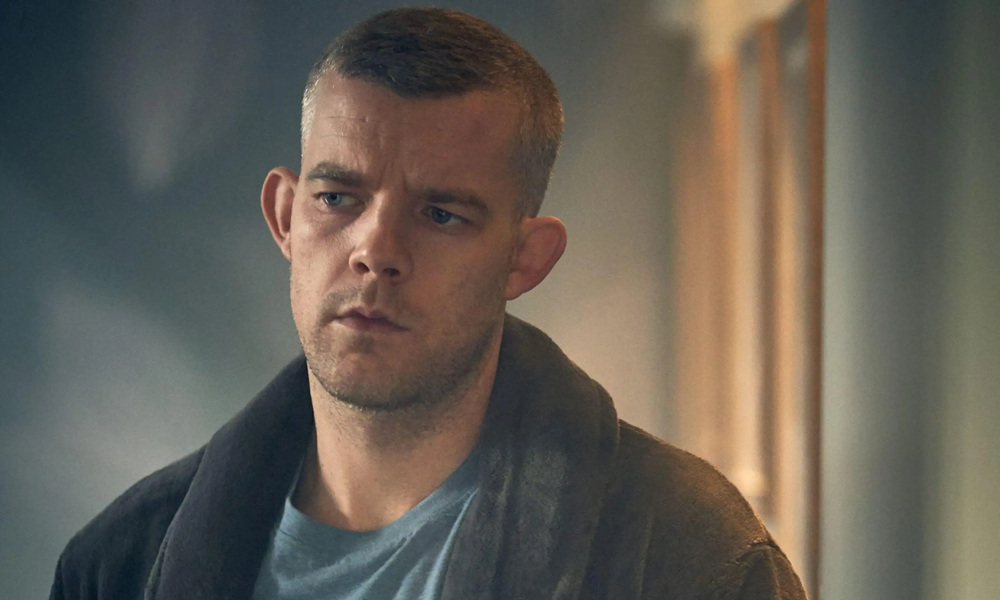

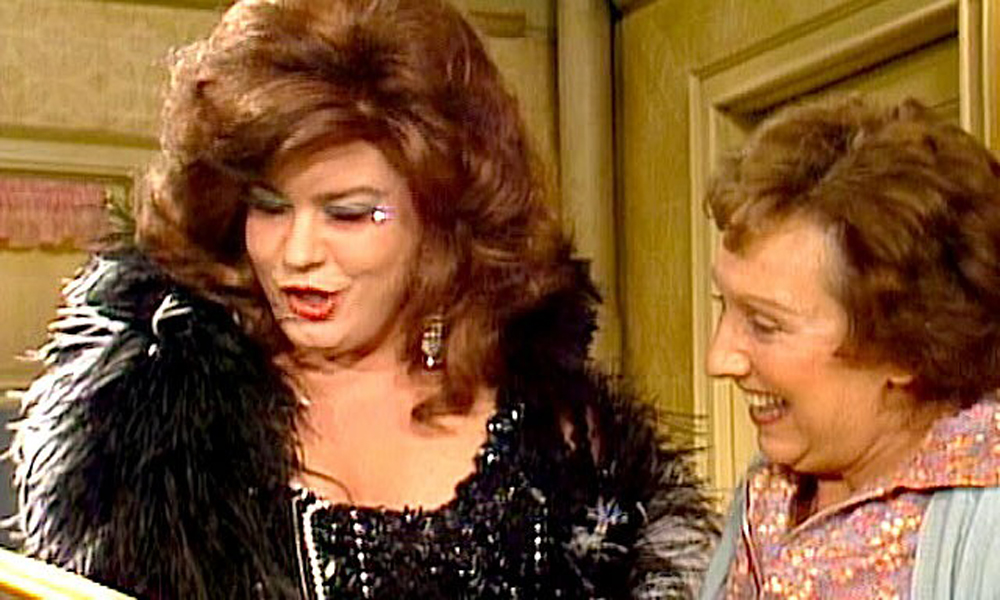
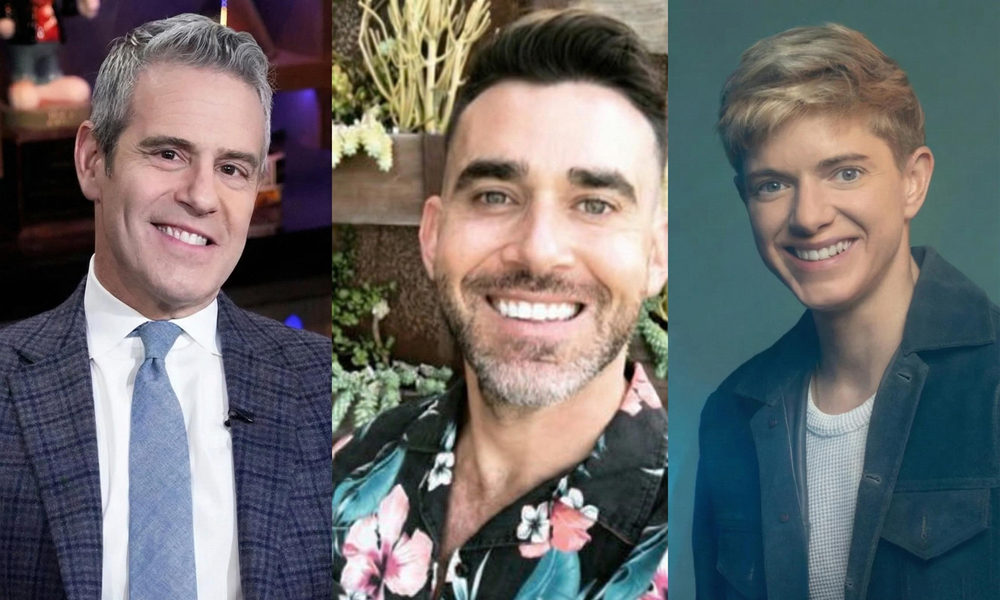
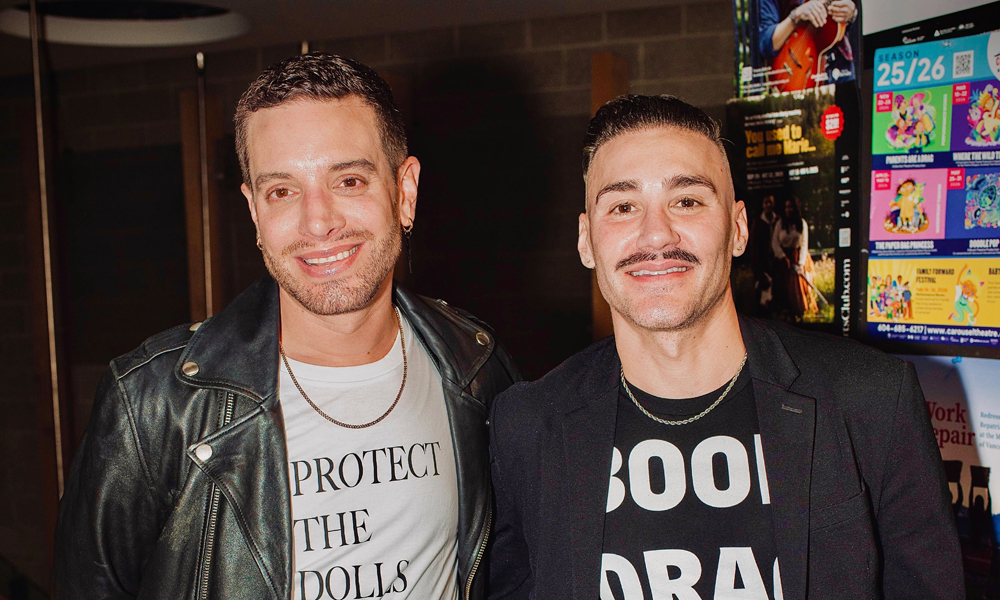
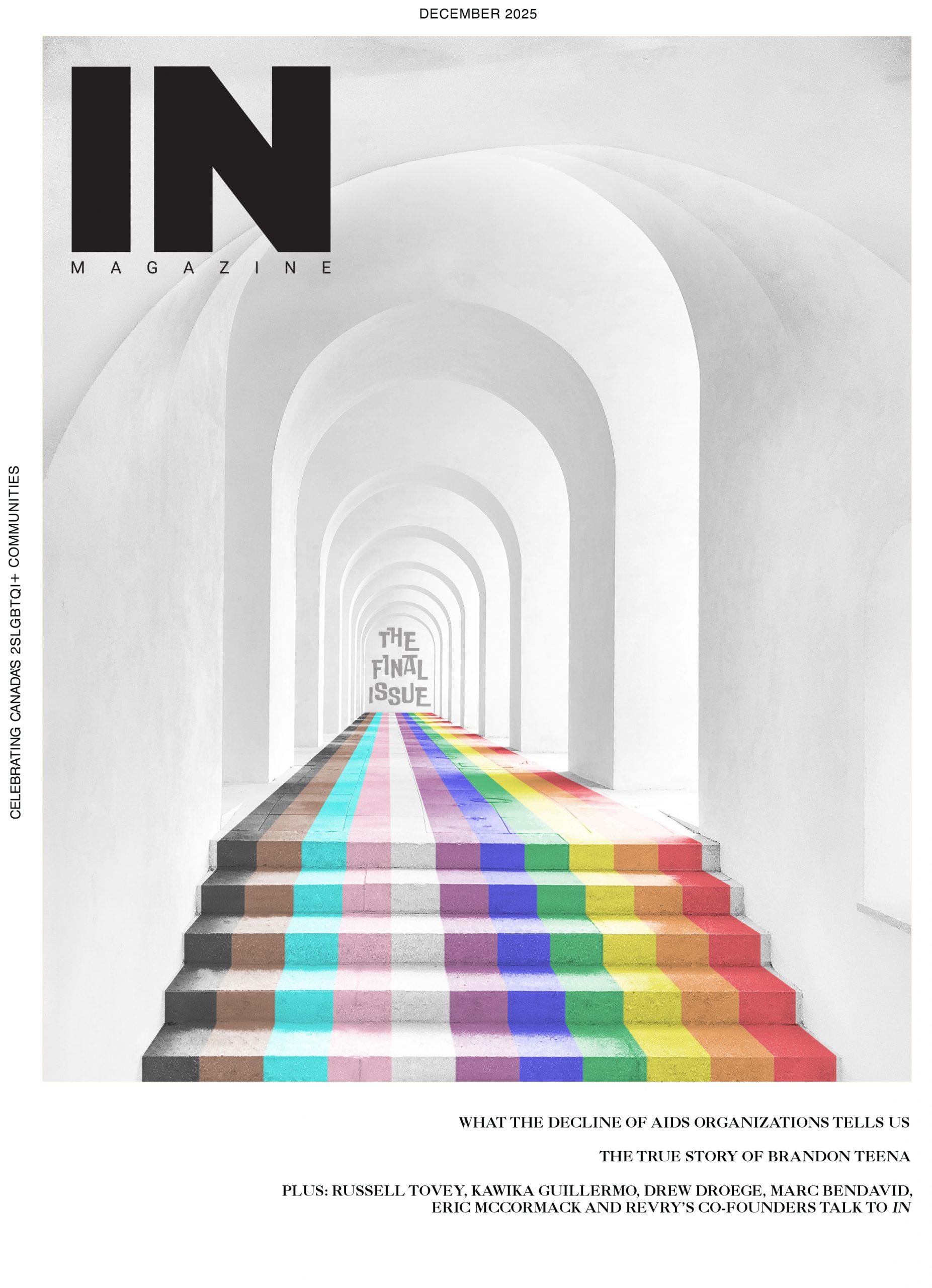
POST A COMMENT